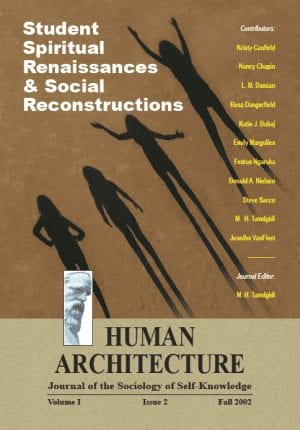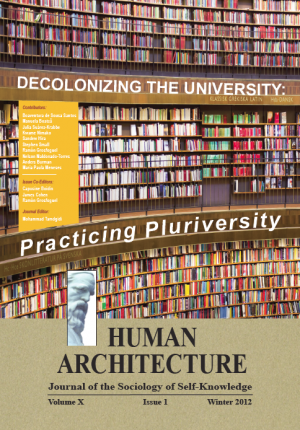Book Section: CHAPTER 3 — The Classical Newtonian Way of Imagining Reality: Unlike the Billiard Balls Game, Actually — by Mohammad H. Tamdgidi
$20.00
This is the third chapter of the first volume of the series, Liberating Sociology: From Newtonian to Quantum Imaginations, subtitled Unriddling the Quantum Enigma, by Mohammad H. Tamdgidi. In this chapter titled “The Newtonian Way of Imagining Reality: Unlike the Billiard Balls Game, Actually,” Tamdgidi argues that when considering the quantum enigma, to assume and claim that the Newtonian way of thinking (even as corrected by theories of relativity) more or less accurately describes and explains the macroscopic world is not only a wholly exaggerated claim, it is simply inaccurate and false. Newtonianism was constructed as such, amid specific historical and cultural contexts in the West, as a way of thinking about reality from which self-willed, creative subjects were excluded, both as actors, and as investigative scientists and human observers, in the name of a false, duplicitous, and self-deceiving model of “objectivity.”
Description
Abstract
This is the third chapter of the first volume of the series, Liberating Sociology: From Newtonian to Quantum Imaginations, subtitled Unriddling the Quantum Enigma, by Mohammad H. Tamdgidi. In this chapter titled “The Newtonian Way of Imagining Reality: Unlike the Billiard Balls Game, Actually,” Tamdgidi argues that when considering the quantum enigma, to assume and claim that the Newtonian way of thinking (even as corrected by theories of relativity) more or less accurately describes and explains the macroscopic world is not only a wholly exaggerated claim, it is simply inaccurate and false. Newtonianism was constructed as such, amid specific historical and cultural contexts in the West, as a way of thinking about reality from which self-willed, creative subjects were excluded, both as actors, and as investigative scientists and human observers, in the name of a false, duplicitous, and self-deceiving model of “objectivity.” Not only was it deficient in understanding inanimate nature, but also in understanding animate and human realities in the macroscopic world. Tamdgidi argues that it was because of its failures in solving macroscopic social problems that we should be skeptical about exaggerations made regarding its supposed success in understanding the macroscopic world. It follows, then, that it is actually not accurate to characterize the Newtonian way of thinking using the billiard balls game metaphor, a practice that has served, wrongly, to hypnotically etch in our public subconscious imaginations the “still accurate” nature of Newtonian model in describing and explaining macroscopic reality.
Tamdgidi argues that the Newtonian way of thinking is not like the billiard balls game because it excludes the players (in fact, or in willfulness) from the game, and it is only by such arbitrary removal of the subject (investigative or observing) from the object of research that it continues to hold on to a self-serving principle of objectivity by excluding the subject in order to envision reality as “predictable,” deterministic, and law-governed. It is actually more accurate to characterize the Newtonian model itself as a strange and enigmatic way of thinking indeed, one that cannot indisputably claim to offer an entirely truthful understanding of inanimate nature, let alone of the animate nature in which human beings and their society increasingly play and can play a creative, open-ended, and unpredictable, part.
Tamdgidi further argues that the classical Newtonian way of thinking about reality was itself an arbitrary, socially constructed vision of reality which for historically contingent reasons took the ideological form it took as a model of scientific work. Its claim for understanding reality as being objectively law-governed was dependent on a view of the scientific research process in which reality is dualistically regarded as composed of separable atoms and chunks whose nature can be predictably determined in the absence of and separate from willful subjects playing a role in, or observing/studying, the object during study. Such a vision could only be maintained through a fragmented model of scientific disciplinarity that necessarily becomes hierarchical from within and dismissive of other intellectual traditions. As an ideological distortion of scientific worldview arising from a historical context involving a conflict between religion and secularism, it served broader class and imperial/colonial interests in and outside the West.
Tamdgidi proceeds then to list and elaborate on the eight basic notional building blocks of the Newtonian way of thinking, drawing attention to the logical interrelatedness of the attributes in terms of how each conditions the following attribute: 1-dualism; 2-atomism; 3-separability; 4-(subjectless) objectivity; 5-determinism; 6-continuity; 7-disciplinarity; and 8-scientism.
Recommended Citation
Tamdgidi, Mohammad H. 2020. “CHAPTER 3 — The Classical Newtonian Way of Imagining Reality: Unlike the Billiard Balls Game, Actually.” Pp. 137-174 in Liberating Sociology: From Newtonian Toward Quantum Imaginations: Volume 1: Unriddling the Quantum Enigma. (Human Architecture: Journal of the Sociology of Self-Knowledge: Vol. XIII, Issue 1, 2020.) Belmont, MA: Okcir Press (an imprint of Ahead Publishing House).
The various editions of the volume of which this chapter is a part can be ordered from the Okcir Store and all major online bookstores worldwide (such as Amazon, Barnes&Noble, and others).
Read the Above Publication Online
To read the above publication online, you need to be logged in as an OKCIR Library member with a valid access. In that case just click on the large PDF icon below to access the publication. Make sure you refresh your browser page after logging in.








